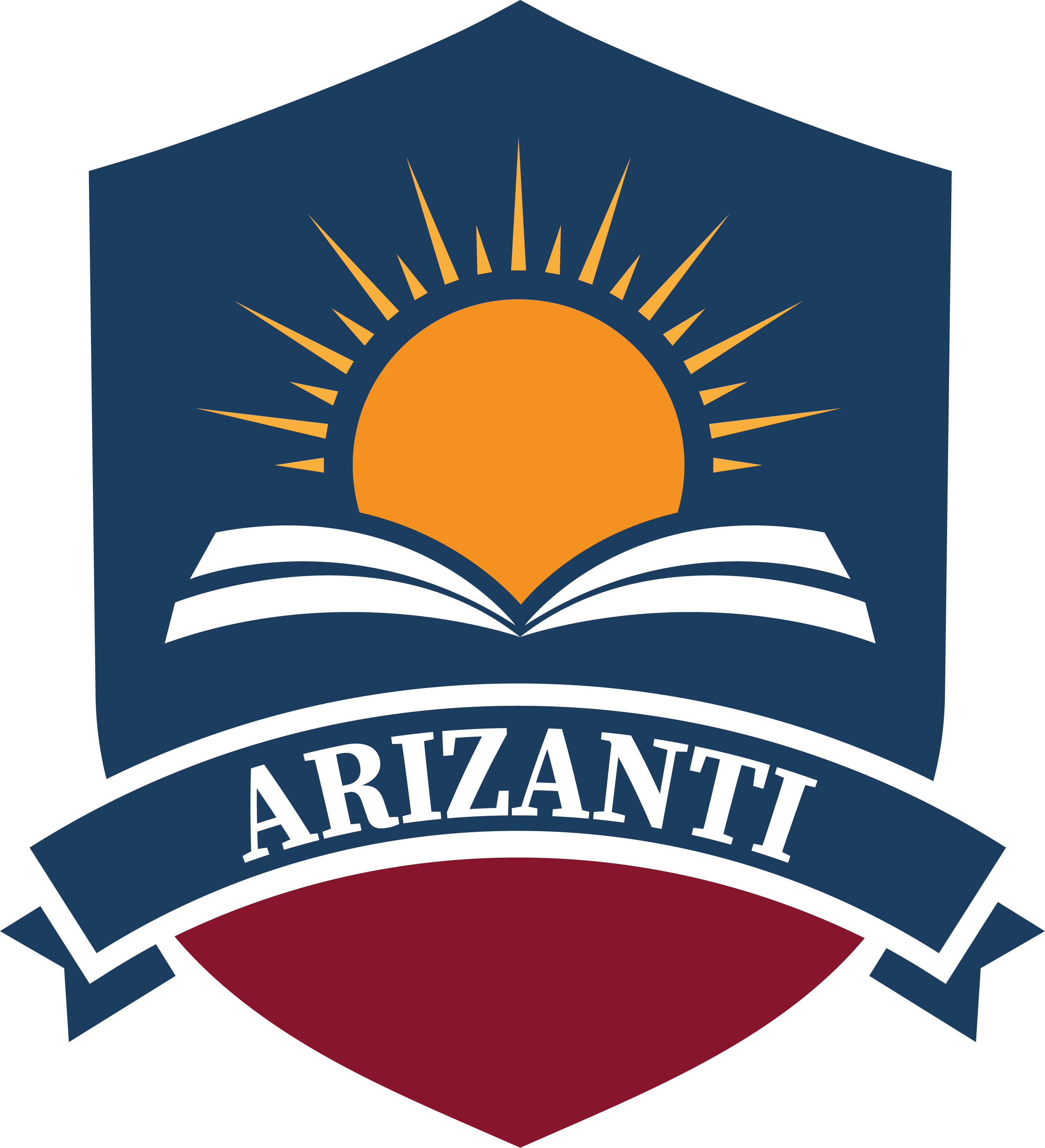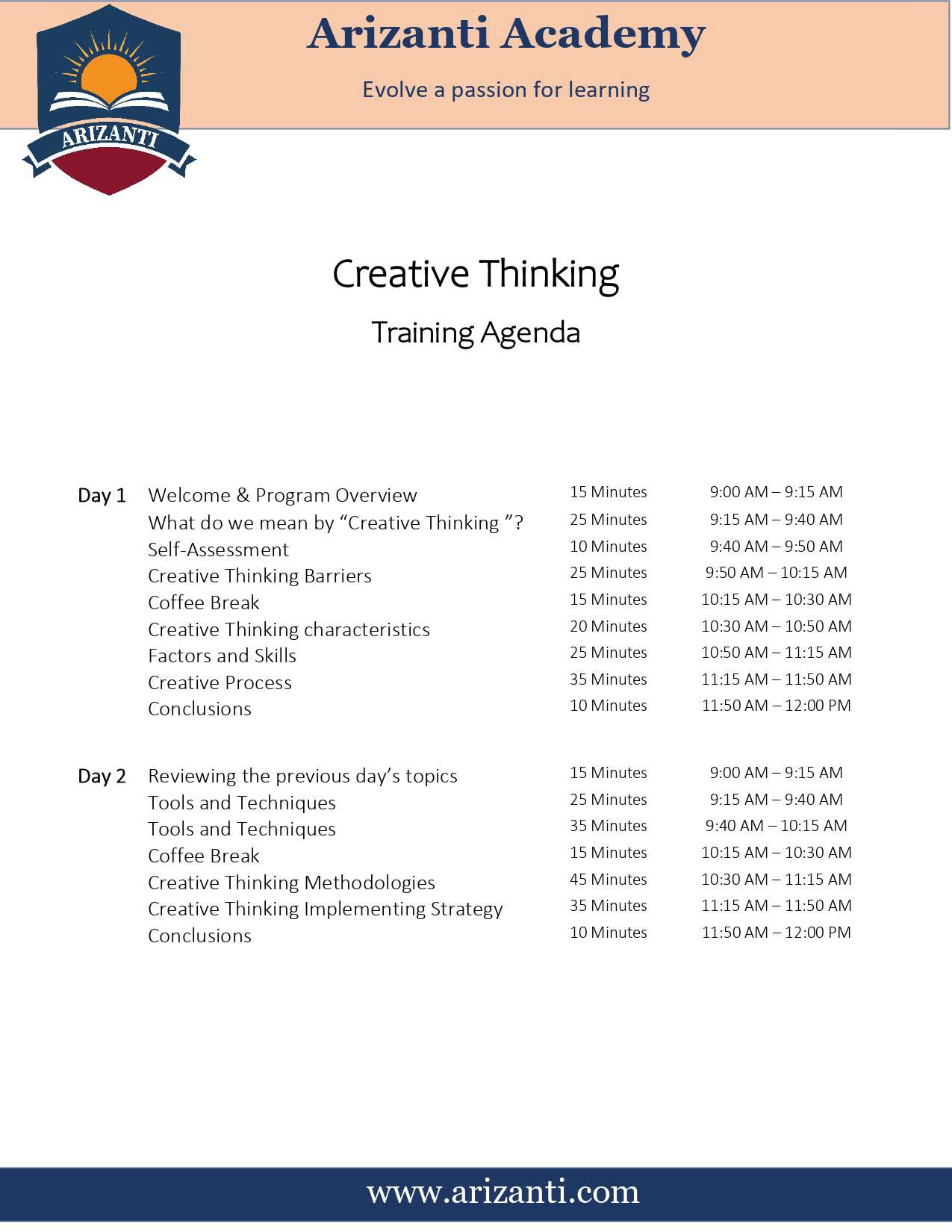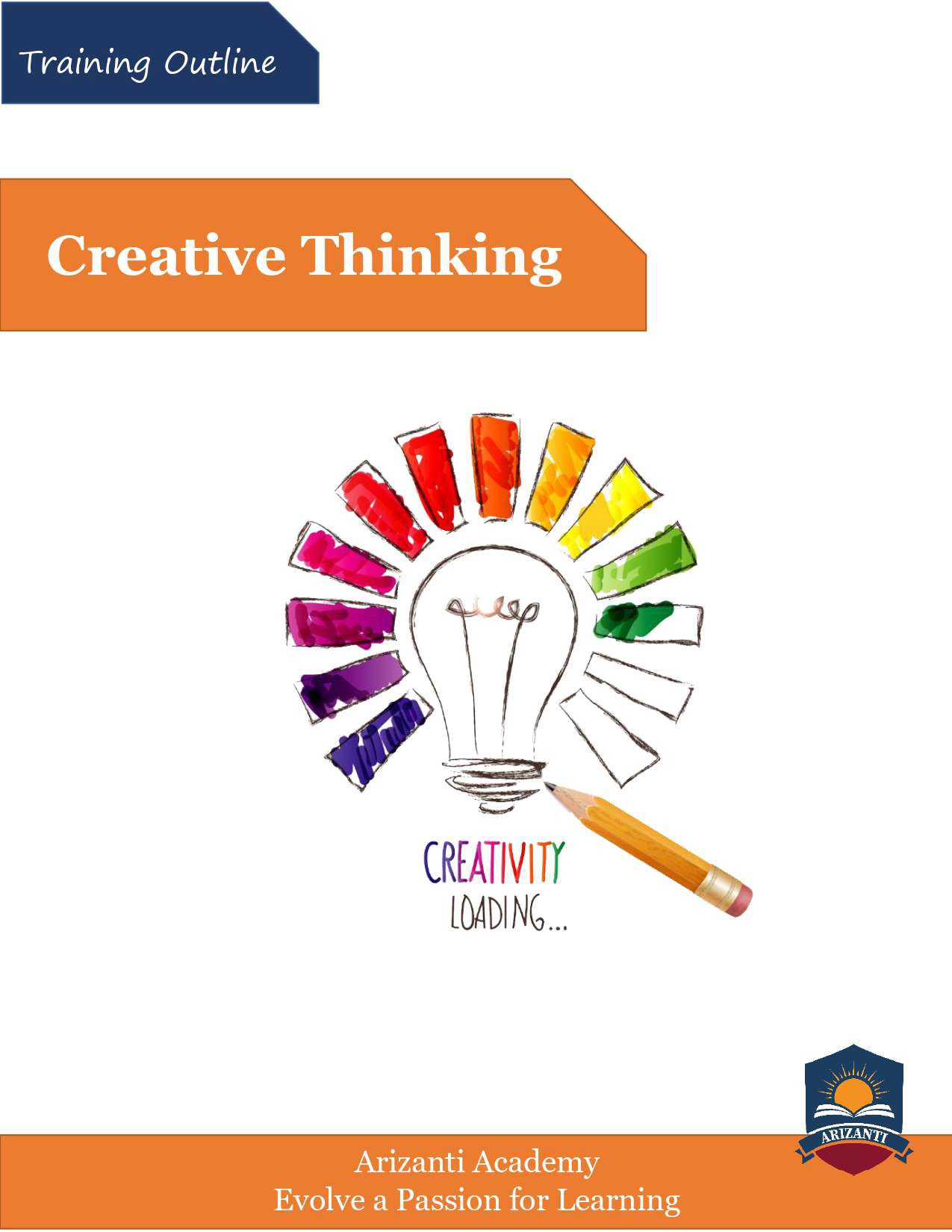By the end of this training, we expect the participants to have a deeper understanding of the importance of creative thinking through:
- Understand Creativity Thinking and how it works.
- Inspire new ways of thinking to create a constant flow of unique ideas.
- Use several creative thinking techniques and methods.
- Develop new ideas and strategies at their place of work.
- Enhance the use of their thoughts and imagination.
- Overcome mental barriers and think out of the box.
- Understand various creative thinking methodologies.
Training Curriculum:
During the first day of training, participants will perform a self-assessment test to determine their knowledge and degree of mastery of creative thinking skills. This will help Identifying the aspects to be developed and the skills required to enhance their abilities to think creatively. Participants will learn about the concept of creative thinking in general, the most important obstacles and barriers that limit their ability to think creatively. They will also learn about the most important characteristics of creative thinking as well as the most important characteristics of a creative person so that they can compare them with their current abilities and then think about ways to improve them. At the end of the day, participants will learn about the steps of the creative thinking process model and how to apply it in the work environment.
At the end of this day the trainees were able to have a better understanding of:- Creative Thinking Barriers.
- Main Characteristics of Creativity.
- Main Characteristics of Creatives.
- Creative Thinking Factors and Skills.
- Promoting creative thinking.
- Creative Process Model.
During the second day of the training, participants will learn about the most important tools and techniques that will enable them to improve their creative thinking, whether on a personal level, such as (The RAP Model) and (Mind Mapping) techniques, or those that can be used on a team level such as (Brainstorming). During this day, participants will learn about the most important methods used to apply creative thinking in innovation and development, such as (The CoRT thinking programme), (TRIZ) and (SCAMPER), and at the end of the day they will be introduced to the creative thinking implementing strategy in the field of innovation and development, which can be used to promote their creative ideas and projects in their work environment.
At the end of this day the trainees were able to have a better understanding of:- Creative Thinking Tools and Techniques – Personal Level.
- Creative Thinking Tools and Techniques – Teamwork Level.
- Creative Thinking Methodologies.
- Creative Thinking Implementing Strategy.
Who should attend?
This program is for any business professional looking to become more positive, confident, expressive, and productive in the corporate world and their personal lives.
A: Private training courses can be delivered in its location in (Villa No. R3/169, New Azadi-Atconz, Erbil/KRI) or outside venue booked by Arizanti Academy when there would be a need, or at your business premises.
Q: In which language the trainings are delivered?A: Our programs can be delivered in Kurdish, Arabic or English.
Q: What are your ideal training schedules?A: Half-day session: (09:00 am to 12:00 pm) or (2:00 pm to 5:00 pm) or to suit. Full-day session: (09:30 am to 15:30 pm) or to suit.
Our trainers are not only the most qualified professionally, but they are also the most capable of delivering information to the trainees. We rely on their selection, in addition to their high scientific specializations, on their experiences and personal abilities in implementing training programs of high value and positive returns, so that the training process does not become a mere waste of time and effort, but rather a real development of capabilities, skills and practical benefit acquired by our clients and their staff and practiced virtually to improve their overall performance.
In Arizanti Academy, we believe that accurate evaluation of training programs, based on scientific foundations and well-thought-out criteria, is the best way to achieve the desired goals of training, achieve maximum benefit from the program, and provide trainees with scientific knowledge, experience and practical skills. Therefore, we have built our evaluation systems based on accreditation and compatibility with a set of evaluation systems and international standards, where we rely in our work on: -
- Evaluation of the training program on the morning of the second day (if the program lasts for more than one day) to avoid any shortcomings in the program, and to achieve the objectives of the participants as groups and individuals.
- Participants' evaluation of the training material, the trainer, the place of training, training services and coordination on the last day of the program (this report is analyzed and the results are sent with the original evaluation sheets to the client with the final report).



